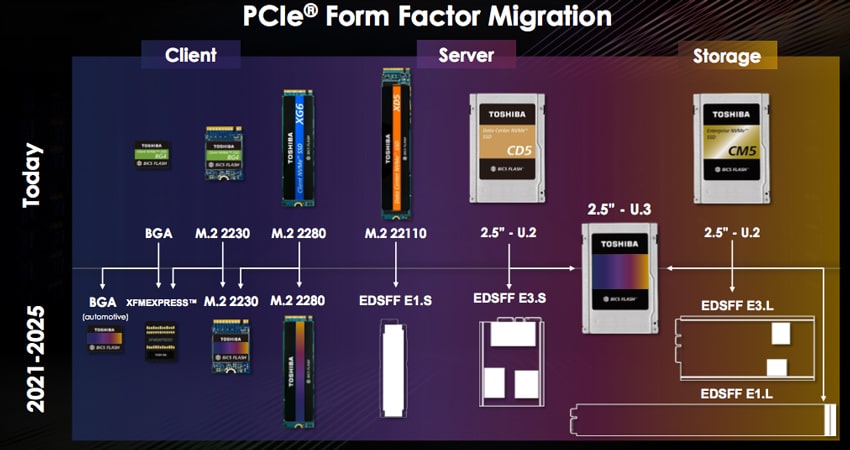
At the Flash Memory Summit Toshiba made several announcements including a new Storage Class Memory in XL-FLASH, and a new form factor with XFMEXPRESS. Another announcement that went under my radar was the introduction of two new PCIe 4.0 SSDs. The company announced and demoed the CM6 Series SSDs for enterprise and announced the CD6 Series SSDs for the data center.
PCIe 4.0 will double the bandwidth of 3.0. With the release of the new AMD EPYC Rome 7002 Series, PCIe 4.0 support has been brought to x86 servers. Other benefits include dramatically improving NVMe SSD performance, both in requiring fewer channels to get the same job done, which helps chassis and motherboard vendors cram additional functionality in that was previously used all by storage devices. PCIe 4.0 is also beneficial for FPGAs and GPUs that have been limited by 3.0 in the past.
For the CM6, Toshiba was the first company to publicly demo a enterprise PCIe 4.0 SSD. The company states a sequential read performance over 6.4GB/s. The series of drives support dual-port PCIe Gen4 x4 lanes and are NVMe 1.4 compliant. The CM6 will be available in 2.5” form factor in capacity ranging from 800GB to 30TB with 1 or 3 DWPD options.
The CD6 is the data center version. The CD6 series will be offered in a PCIe 1×4 configuration only (the CM6 is offered in both PCIe 2×2 and PCIe 1×4). Both drives will be offered in SFF-TA-1001 or U.3 form factor. The drives will leverage Toshiba Memory’s 96-layer BiCS FLASH 3D memory. The company states that users can expect to see 12x performance over SATA.
Sign up for the StorageReview newsletter

